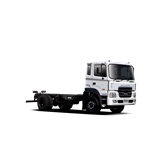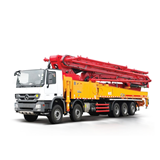Truck driving is Australia's most dangerous occupation, and with a workplace fatality rate 15 times higher than the national average, major retailers and government are under fire to take responsibility for the problem.
Transport Workers Union (TWU) National Secretary Tony Sheldon laid the blame firmly at the door of Australia's major retailers, who he said pressured drivers and government to ensure their ever tighter delivery schedules were not interrupted.
Retailer pressure
A 2012 industry survey of the Coles supply chain found 46 per cent of drivers reported economic pressure to skip rest breaks, 28 per cent felt pressure to speed, while a further 26 per cent said they were under duress to carry illegal overweight loads.
"Major retailers like Coles tell drivers to meet tighter and tighter delivery times, or lose their jobs," Sheldon said.
"The consequence is trucks on the road for too long, or going too fast. When drivers aren't paid enough to maintain their vehicles or earn a living wage, they are forced to speed, skip breaks or carry overweight loads just to survive.
"Up to 330 Australians die in truck crashes each year. Many of these deaths could be prevented if clients like Coles stopped using economic pressure to force drivers to break the law."
Sheldon also condemned moves by Coles to mount a political campaign to abolish Australia's road safety watchdog, the Road Safety Remuneration Tribunal (RSRT).
The Government is reviewing the RSRT, which has the power to intervene when clients use economic pressure to force faster deliveries at the expense of road safety.
"We've seen Coles and its parent company Wesfarmers deliver $2.1 million in Liberal donations. And we're seeing closed-door meetings between Coles and Liberal MPs, after which the government announced the RSRT is 'red tape' that was 'ripe' for repeal," he said.
"This retailer is using economic pressure to squeeze drivers. Now it is using the economic pressure of donations, to squeeze the Government.
"Stop risking lives through insane delivery times."
Coles meanwhile has remained tight-lipped on the accusations, pointing only to its preferred supplier requirements document claiming safety is its number one priority.
"Coles is committed to ensuring our trade partners and suppliers understand their obligations with regard to road safety," the document states.
"It is important to ensure that we send every team member, visitor, contractor and driver home safely.
"National heavy vehicle legislation requires that you have taken all reasonable steps to ensure that you do not cause or contribute to a breach of chain of responsibility."
Earlier this year NSW Roads and Maritime Services (RMS) personnel in conjunction with police conducted a snap inspection at the Coles distribution at Smeaton Grange in Sydney's west.
RMS Director Safety and Compliance, Peter Wells, said multiple breaches were discovered, particularly in relation to load restraint.
"We carried out more than 60 inspections of vehicles. We found 13 minor defects, nine load restraint breaches, one major defect, one weight breach, two unregistered vehicles and other issues which were rectified on site before the trucks allowed to move on," Wells said.
"Unsafe practices such as fatigue breaches, mass breaches and substandard loading practices and load restraint will not be tolerated."
Chain of responsibility
The chain of responsibility laws aim to ensure everyone in the supply chain shares equal responsibility for ensuring breaches of road transport laws do not occur.
Under the laws if you exercise control or influence over any transport task, you are part of the supply chain and therefore have a responsibility to ensure road transport laws are complied with.
However Australian Trucking Association (ATA) Chairman, David Simon, said the laws did not go far enough.
"They only apply to speed management, fatigue, vehicle mass, vehicle dimensions and load restraint. They don't apply to maintenance," Simon said.
"In tough times, it is easy for business executives to cut back on maintenance spending in the belief that it won't affect safety – for a while.
"The ATA and its members have called on governments to extend the chain of responsibility concept to vehicle maintenance."
Simon said a change to the law would compel businesses and executives to take reasonable steps to ensure that trucks are maintained properly, for example by ensuring maintenance staff have adequate budgets, resources and training.
Nevertheless he said the industry had come a long way already on improving its safety record.
"Statistics from Australia's leading truck insurer, NTI, show the rate of serious crashes per thousand trucks and trailers improved 42.7 per cent between 2003 and 2011. This is an unprecedented safety result," Simon said.
"More generally, Australia's road toll has fallen to historic lows. In Victoria and NSW, the road toll last year was the lowest since 1924.
"We all need to do more. But we also need to recognise how far the industry has come already."
Heavy vehicle crashes down
NTI's statistics were backed by a report from the Bureau of Infrastructure, Transport and Regional Economics (BITRE) earlier this month which found annual fatalities from crashes involving trucks and buses reduced over the last decade from 281 to 189.
More troubling was the finding that over two thirds of crashes involving a heavy vehicle happen outside capital cities on national and state highways.
A heavy vehicle enforcement operation conducted by NSW Police for three weeks across May and June found 79 of the 879 trucks inspected had been tampered with to allow speeds over the 100km/h limit for heavy vehicles – including one vehicle that had been modified to allow a speed of 162km/h.
Further 7201 mechanical defects were identified; 3339 infringements were issued for speeding, licence and log book offences; 841 breaches were recorded for unsecured loads, fatigue and permit offences; while 3105 drug tests were carried out resulting in 26 positive results. All this, in one state, in three weeks.
To what extent Australia's heavy vehicle safety record is a failing of a handful of rogue operators rather than systemic breaches across the entire supply chain may be a matter of debate, but what isn't in doubt is that everyone in the supply chain has a responsibility to improve heavy vehicle road safety.
The problem, according to Sharron O'Neill, a research fellow in international governance and performance at Macquarie University, is that it is usually the drivers themselves who feel the brunt of any crackdown.
"Legal advisors suggest that while regulators can charge anyone in the COR (chain of responsibility), in practice they tend to prosecute the vehicle's driver," O'Neill said.
"The driver is then forced to appeal the charge by nominating the responsible party. This puts drivers in an unenviable position, particularly those precariously employed as casuals or sub-contractors, because they risk jeopardising future work.
"Anyone with corporate governance responsibilities should take note. Efforts… to direct attention 'up' the transport industry supply chain are increasingly visible and may signal a turning point in corporate accountability for worker safety.
"At the very least, it puts those in charge of resourcing, maintenance, scheduling and procurement on notice."
- Suppliers
- New to IndustrySearch? Book a Demo
- Advertise with us
- Login
- Email Marketing
- Buyers
- Get Quotes
- Articles & Ideas
- Login
- Subscribe to newsletter
- My Details
- Get Quotes
- Automation & Control
- Automotive Workshop Equipment
- Cleaning Equipment
- Construction & Heavy Machinery
- Conveyor Systems & Components
- Cranes & Hoists
- Electrical & Power Generation Equipment
- Electronic Components
- Farming & Agriculture
- Food & Beverage Processing
- Forklifts & Attachments
- Hydraulic & Pneumatic Equipment
- Industrial Materials, Tools & Components
- Industrial Pumps
- IT Hardware & Industrial Computing
- IT Software & Applications
- Laboratory Equipment & Instruments
- Manufacturing & Industrial Equipment
- Material Handling & Lifting
- Metalworking & Machining
- Mining Equipment & Machinery
- Packaging & Labelling Machinery
- Pallet Management
- Personal Protective Equipment
- Security & Surveillance
- Test & Measurement
- Transport Equipment
- Trucks & Trailers
- Warehouse Storage & Racking
- Waste & Environmental Management
- Welding Machines & Accessories
- Woodworking & Joinery Machines
- Workplace Equipment
- Workplace Safety Equipment
- Get Quotes
- Automation & Control
- Automotive Workshop Equipment
- Cleaning Equipment
- Construction & Heavy Machinery
- Conveyor Systems & Components
- Cranes & Hoists
- Electrical & Power Generation Equipment
- Electronic Components
- Farming & Agriculture
- Food & Beverage Processing
- Forklifts & Attachments
- Hydraulic & Pneumatic Equipment
- Industrial Materials, Tools & Components
- Industrial Pumps
- IT Hardware & Industrial Computing
- IT Software & Applications
- Laboratory Equipment & Instruments
- Manufacturing & Industrial Equipment
- Material Handling & Lifting
- Metalworking & Machining
- Mining Equipment & Machinery
- Packaging & Labelling Machinery
- Pallet Management
- Personal Protective Equipment
- Security & Surveillance
- Test & Measurement
- Transport Equipment
- Trucks & Trailers
- Warehouse Storage & Racking
- Waste & Environmental Management
- Welding Machines & Accessories
- Woodworking & Joinery Machines
- Workplace Equipment
- Workplace Safety Equipment
Trusted by 1.4 million Australian industrial buyers
Buyers
- Discover products & solutions
- Login
- Subscribe To Newsletter
- Browse All Products
- Read Articles
Suppliers
Advertise
- Promote your products & solutions
- New to IndustrySearch? Book a Demo
- Login / Forgot Password
- Advertise Your Products
- Success Stories
- Email Marketing
- Suppliers
- Advertise with us
- Login
- Email Marketing
- Buyers
- Get Quotes
- Articles & Ideas
- Login
- Subscribe to newsletter
- My Details
Get Quotes
- Automation & Control
- Automotive Workshop Equipment
- Cleaning Equipment
- Construction & Heavy Machinery
- Conveyor Systems & Components
- Cranes & Hoists
- Electrical & Power Generation Equipment
- Electronic Components
- Farming & Agriculture
- Food & Beverage Processing
- Forklifts & Attachments
- Hydraulic & Pneumatic Equipment
- Industrial Materials, Tools & Components
- Industrial Pumps
- IT Hardware & Industrial Computing
- IT Software & Applications
- Laboratory Equipment & Instruments
- Manufacturing & Industrial Equipment
- Material Handling & Lifting
- Metalworking & Machining
- Mining Equipment & Machinery
- Packaging & Labelling Machinery
- Pallet Management
- Personal Protective Equipment
- Security & Surveillance
- Test & Measurement
- Transport Equipment
- Trucks & Trailers
- Warehouse Storage & Racking
- Waste & Environmental Management
- Welding Machines & Accessories
- Woodworking & Joinery Machines
- Workplace Equipment
- Workplace Safety Equipment
Get Quotes
- Automation & Control
- Automotive Workshop Equipment
- Cleaning Equipment
- Construction & Heavy Machinery
- Conveyor Systems & Components
- Cranes & Hoists
- Electrical & Power Generation Equipment
- Electronic Components
- Farming & Agriculture
- Food & Beverage Processing
- Forklifts & Attachments
- Hydraulic & Pneumatic Equipment
- Industrial Materials, Tools & Components
- Industrial Pumps
- IT Hardware & Industrial Computing
- IT Software & Applications
- Laboratory Equipment & Instruments
- Manufacturing & Industrial Equipment
- Material Handling & Lifting
- Metalworking & Machining
- Mining Equipment & Machinery
- Packaging & Labelling Machinery
- Pallet Management
- Personal Protective Equipment
- Security & Surveillance
- Test & Measurement
- Transport Equipment
- Trucks & Trailers
- Warehouse Storage & Racking
- Waste & Environmental Management
- Welding Machines & Accessories
- Woodworking & Joinery Machines
- Workplace Equipment
- Workplace Safety Equipment
Trusted by 1.4 million Australian industrial buyers

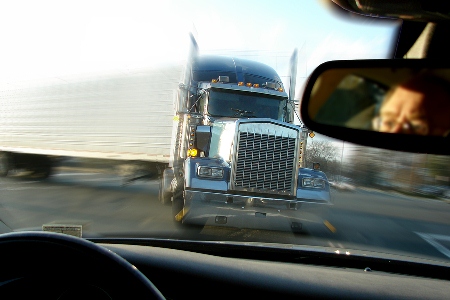

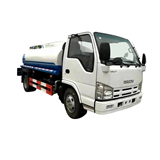



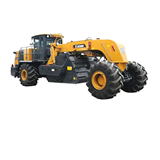
-160x160-state_article-rel-cat.png)









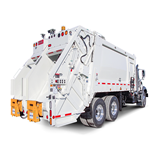
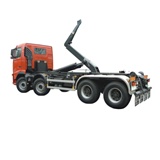


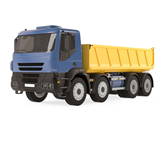


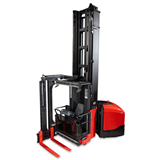
-160x160-state_article-rel-cat.png)
-160x160-state_article-rel-cat.png)
